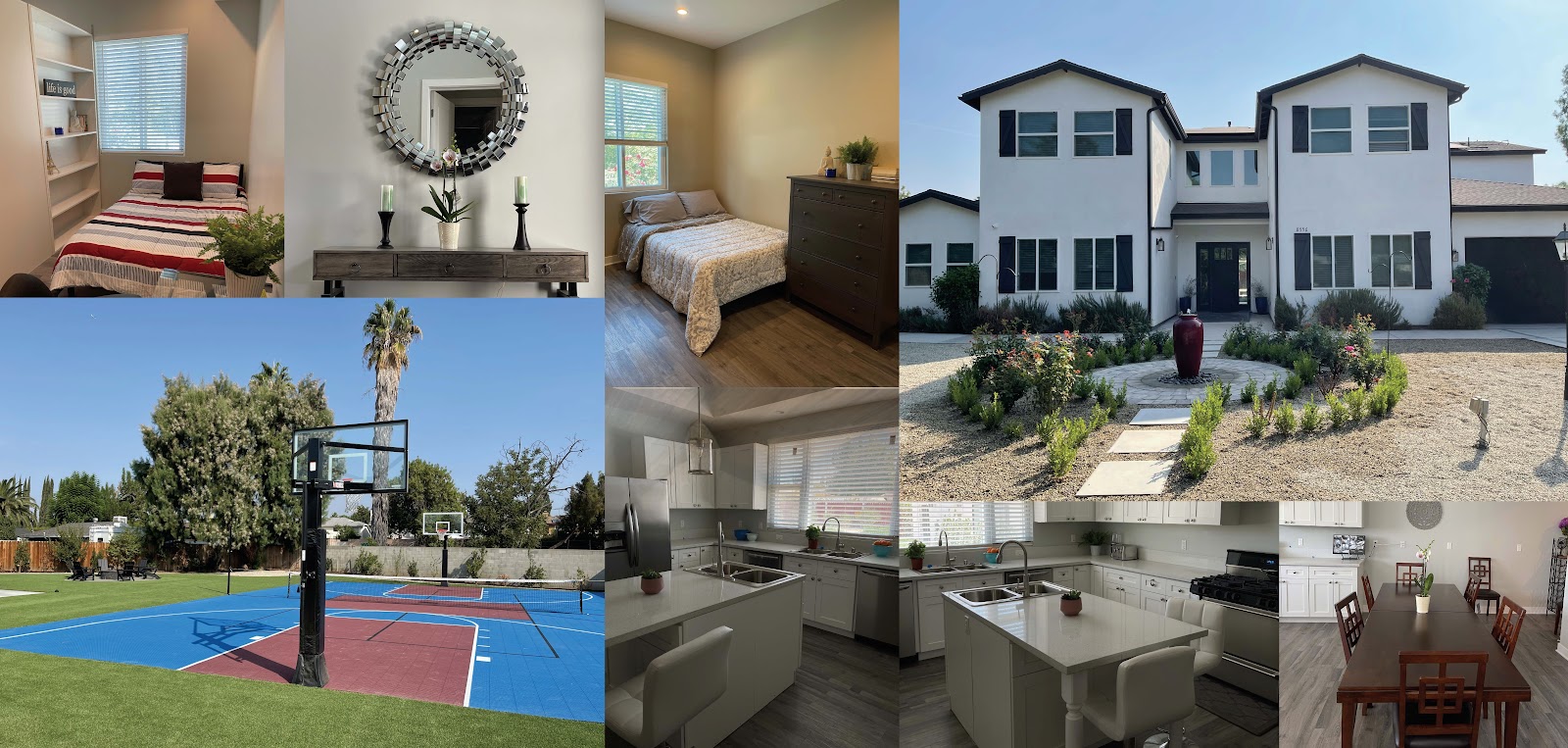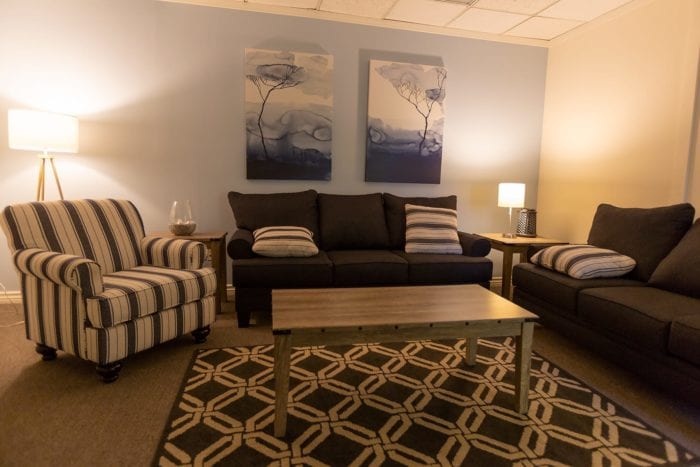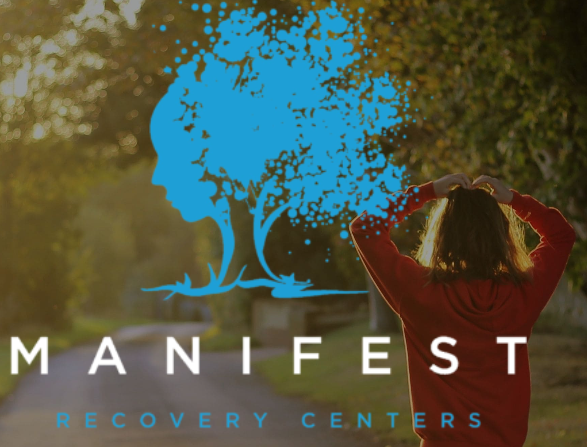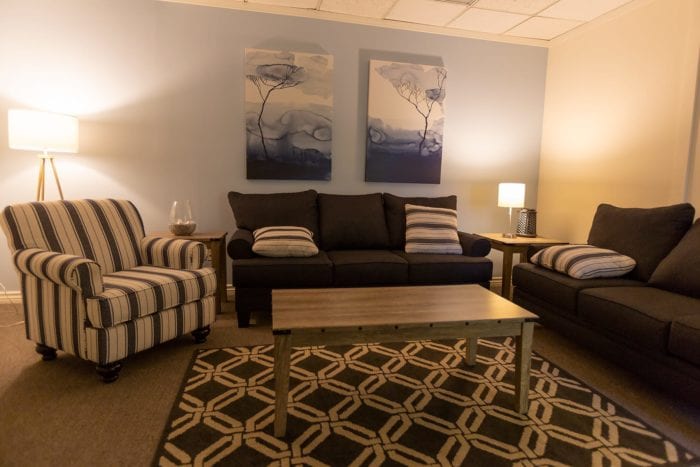Manifest Recovery Centers
Overview
Manifest Recovery Centers, situated in Los Angeles, California, is an esteemed alcohol and drug rehabilitation center known for its evidence-based treatment interventions that address both the physical and mental aspects of addiction and recovery. The center is dedicated to making treatment accessible to as many individuals as possible, offering scholarships and financial assistance to those who may not otherwise afford care.
Manifest Recovery Centers provides comprehensive services for individuals struggling with addiction and dual diagnoses. Their offerings include a highly flexible intensive outpatient program (IOP) designed to fit the varying schedules of their clients. The IOP is available during daytime, evening, or weekend hours, requiring participants to engage in an average of nine hours of treatment per week. The program includes a range of therapeutic services, such as experiential therapies, restorative yoga, brain-spotting, spiritual support, and a combination of individual, group, and family therapy.
For men seeking a supportive environment during their recovery, Manifest Recovery Centers operates a sober living home in Northridge, California. This men’s-only residence is conveniently located near local attractions and job opportunities, providing a stable environment as residents transition back into society. The home is managed by an on-site house manager available 24/7 to maintain the integrity and structure of the living environment. Residents are required to participate in daily chores, attend house meetings, remain sober, and continue their addiction treatment program.
Manifest Recovery Centers is committed to personalized care, developing the most effective treatment plans tailored to each individual’s unique needs. This customized approach ensures that both the physical and mental characteristics of addiction are comprehensively addressed. The center also offers specialized programs for professionals, providing treatment options that accommodate their work schedules, including evenings and weekends.
The center accepts most major medical insurance plans, including First Health, Value Options, Humana, and MultiPlan Network. Clients are encouraged to verify their out-of-network benefits as coverage may vary.
Manifest Recovery Centers is accredited by The Joint Commission, reflecting its commitment to meeting the highest standards of care in addiction treatment.
Manifest Recovery Centers at a Glance
Payment Options
- Private health insurance
- Sliding fee scale (fee is based on income and other factors)
- Cash or self-payment
- Self-pay options
Assessments
- Comprehensive mental health assessment
- Comprehensive substance use assessment
Age Groups
- Young adults
Operation
- Treatment duration
- Private for-profit organization
Accreditations
The Joint Commission:

The Joint Commission accreditation for addiction and behavioral health signifies that a facility has met rigorous standards in patient care, treatment, and safety. This recognition assures patients and professionals of the facility's commitment to providing high-quality, evidence-based care in the fields of addiction and behavioral health, fostering trust and confidence in their services.
Treatment At Manifest Recovery Centers

Conditions Treated
Mental health treatment:
Mental health treatment involves a range of therapeutic approaches, provided by licensed professionals, to address mental health challenges. It includes psychotherapy, medication, and holistic practices to help individuals manage conditions, improve coping skills, and enhance overall well-being. The goal is to empower individuals to lead fulfilling lives and reduce the stigma surrounding mental health.
Alcoholism:
Alcohol addiction is when a person becomes physically and mentally dependent on alcohol, leading to mood swings, impulsive actions, intense cravings, and withdrawal symptoms. Treatment includes supervised detox, therapy, and support groups. It's important to note that rehabilitation doesn't "cure" alcoholism, but it helps individuals better manage their addiction, regain their ability to function in daily life, and improve their overall well-being.
Opioid Addiction:
Opioid addiction rehabilitation is a specialized treatment process tailored to address the unique challenges and complexities of opioid dependence, including drugs like heroin and prescriptions like oxycodone. The process typically begins with a medical detox to ease withdrawal symptoms, followed by therapeutic interventions to address the root causes of addiction. This holistic approach aims to provide individuals with the skills and support needed for long-term recovery from opioid use.
Substance use treatment:
Substance use rehabilitation embodies a holistic treatment approach crafted to assist individuals contending with drug or alcohol addiction. This all-encompassing rehabilitation strategy encompasses two crucial components: initially addressing the physical dependency, frequently commencing with detoxification, and subsequently confronting the psychological triggers through a diverse array of therapeutic methods. The overarching objective is to empower individuals to achieve and maintain sobriety while equipping them with essential skills and coping mechanisms for a successful reintegration into society and a life free from substance abuse.
Co-occurring Disorders:
Dual-diagnosis rehabs are usually the appropriate solution to treat co-occurring mental health and substance abuse disorders. These facilities typically employ medical and behavioral experts who use a range of interventions, together with the right healing environment, for you to achieve and sustain long-term recovery. Treatment usually includes evidence-based therapies (like cognitive behavioral therapy), recovery support meetings, 12-step facilitation, psychoeducation, skills training, and group therapy.

Levels Of Care
Luxury Treatment:
Luxury rehab centers provide a high-end, serene environment for individuals battling addiction and mental health issues. Set in picturesque locations, they offer personalized care, spa treatments, gourmet cuisine, and holistic therapies. These centers meld professional expertise with resort-like comforts, offering a discreet and holistic rehabilitation experience.
Detoxification:
Detoxification, often called detox, is like a reset button for the body after someone has been using drugs or alcohol. Its main job is to help people who want to quit these substances by easing the discomfort they might feel when they stop. Think of it as a way to clean out the harmful stuff in the body when someone has been using drugs or alcohol too much. Detoxification aims to make the process of quitting safer and less painful for the person.
Aftercare:
Finishing a drug or alcohol rehab program is not the conclusion of substance abuse treatment but rather a pivotal step toward long-term recovery. Aftercare encompasses devising a sustainable recovery plan coupled with enduring support. It may include sober living environments such as halfway houses, career counseling, and connecting patients with community support programs like Alcoholics Anonymous (AA) or Narcotics Anonymous (NA). This holistic approach ensures a smooth transition into a substance-free life while bolstering resilience against relapse.
Outpatient:
Outpatient programs cater to individuals who are in good medical condition and are not at a heightened risk of relapse, including those who have successfully finished their inpatient treatment. These programs usually build upon clients' existing treatment strategies, providing ongoing addiction counseling and educational support for recovery. Individuals who enter outpatient care right after detoxification may also undergo medical and psychological evaluations, followed by the creation of personalized treatment plans. Most outpatient rehabilitation centers offer various levels of care tailored to meet each client's specific needs.
Outpatient detoxification:
Outpatient Detoxification refers to a medical process where individuals with substance dependence are systematically and safely withdrawn from those substances under medical supervision, while not being admitted to a hospital or inpatient facility. This approach allows patients to detoxify from drugs or alcohol in a less restrictive environment, often enabling them to maintain certain daily responsibilities such as work or family commitments. Close monitoring, medications, counseling, and support are provided to manage withdrawal symptoms and prevent complications.

Treatment Modalities
Individual psychotherapy:
Individual therapy, often referred to as psychotherapy or counseling, is a one-on-one therapeutic interaction between a trained therapist and a client. It provides a confidential space for individuals to explore their feelings, beliefs, and behaviors, working through challenging memories, experiences, or emotions. The therapist facilitates self-awareness, promotes personal growth and insight, and offers coping strategies to manage specific issues like stress, anxiety, depression, and other life challenges. The ultimate goal is to improve the individual's mental well-being and enhance their overall quality of life.
Group counseling:
Group Counseling is a therapeutic approach where individuals come together under the guidance of a trained counselor to share experiences, provide mutual support, and gain insights. It fosters a sense of community, promotes understanding through diverse perspectives, and offers personal growth and problem-solving strategies.
Animal Therapy:
Animal therapy, also called pet therapy or animal assisted therapy, refers to various services using animals to help people with specific physical or mental health conditions. Animals may be able to provide comfort, alert others if someone is in danger, or even perform direct actions to help a person’s condition when they are in need. It is a type of complementary or alternative therapy. It should enhance but not replace other treatments. On the whole, the goal of animal assisted therapy is to alleviate or help people cope with some symptoms of various conditions where possible. 3Animal-assisted therapy is provided in a variety of settings, and may be group or individual in nature. The process is documented and evaluated.
Life Skills:
Life skills training equips individuals with essential competencies, such as time management, career planning, financial literacy, and effective communication, to navigate the challenges of daily life. These skills are foundational to achieving not just sobriety but a thriving, fulfilling life post-addiction. Such training lays the groundwork for sustainable success and long-term recovery.
Experiential Therapy:
Experiential therapy is a therapeutic approach that encourages patients to identify and address hidden or subconscious issues through activities, interactions, and role-playing. Instead of focusing solely on talking, therapists use experiential techniques to help clients relive past traumas, express emotions, and gain insights into their behaviors. The aim is to foster personal growth and enhance self-awareness by immersing individuals in experiences that can lead to a deeper understanding of themselves and their relationships.
Holistic Treatment:
Holistic Treatment refers to an integrated approach to recovery that addresses the physical aspects of addiction and the individual's emotional, mental, and spiritual needs. This method incorporates a variety of therapies, practices, and activities, such as nutrition, mindfulness, yoga, and counseling, to promote overall well-being, self-awareness, and balance. By treating the whole person, holistic treatment aims to ensure a more comprehensive and sustainable recovery.

Additional Locations
Contact Information
DISCLAIMER: The facility name, logo and brand are the property and registered trademarks of Manifest Recovery Centers, and are being used for identification and informational purposes only. Use of these names, logos and brands shall not imply endorsement. BetterAddictionCare.com is not affiliated with or sponsored by Manifest Recovery Centers.




